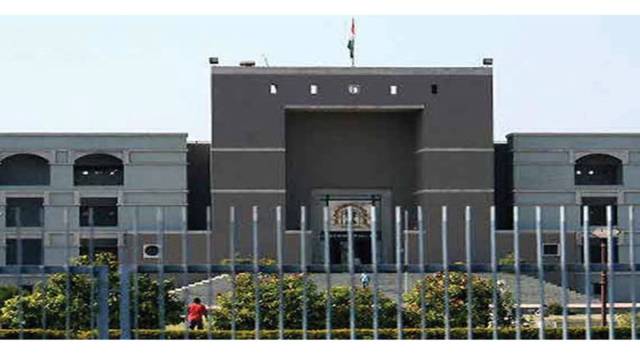Gujarat HC notice in PIL against effluent discharge into Tapi river
The PIL stated the effluent disposal was in violation of the zero discharge conditions imposed by the Ministry of Environment, Forest and Climate Change (MoEFCC) and the Gujarat Pollution Control Board (GPCB) while granting environment clearance for the company.
 Gujarat High Court (File)
Gujarat High Court (File)A division bench of the Gujarat High Court issued notices to the Central and state governments, pollution control boards, Surat authorities and ArcelorMittal Nippon Steel Ltd (AM/NS) following public interest litigation that sought the court’s directions to initiate appropriate proceedings against the steel manufacturer for discharging untreated effluent into the Tapi river and its creek.
The PIL stated the effluent disposal was in violation of the zero discharge conditions imposed by the Ministry of Environment, Forest and Climate Change (MoEFCC) and the Gujarat Pollution Control Board (GPCB) while granting environment clearance for the company. The petition is due to be listed next on March 28.
The petition was moved by Roshni Patel, an environmental scientist who hails from a local tribal community. The PIL stated that AM/NS was illegally discharging industrial effluents containing acid, heavy metals, organic substances, high TDS (Total Dissolved Solids) and phenolic compounds, among others, from its Hazira plant in the Tapi estuary. The discharge harms fish-breeding and causes large-scale water pollution, the PIL stated.
The Consolidated Consent and Authorisation (CCA) and environment clearance (EC) granted to the company in 2016 and 2010 had stipulated a zero effluent discharge policy. A CCA order from 2020 had also stipulated that the final treated effluent should be reused at the plant for gardening and plantation purposes and the company should not discharge treated wastewater into the surrounding environment.
According to the PIL, the company was granted permission in April 2021 by Narmada Water Resources Water Supply and Kalpasar Department of the state government to draw fresh water from the river for the plant requirements. Challenging the same, the PIL has sought the court’s directions to quash and set aside the permission granted citing AM/NS’s failure to apprise the state government of its violation of the zero-effluent discharge.
A September 2021 study by Ahmedabad Textile Industry’s Research Association (ATIRA), carried out at the request of villagers residing in the vicinity of the Hazira plant, had found that the industrial effluent discharged into the water bodies did not adhere to prescribed norms.
It was also submitted that the regional office of MoEFCC, in 2020, had also observed that AMNS was not complying to the zero effluent discharge condition.
Despite the violations, the PIL claimed that GPCB has remained “oblivious” to the non-compliance, notwithstanding the submission that GPCB had issued at least four notices to AM/NS in the past five years under the provisions of the Water Act, 1974 for illegally discharging wastewater into the sea/estuary. It was also observed in these notices that the company has higher pollution concentration than the prescribed norms.







